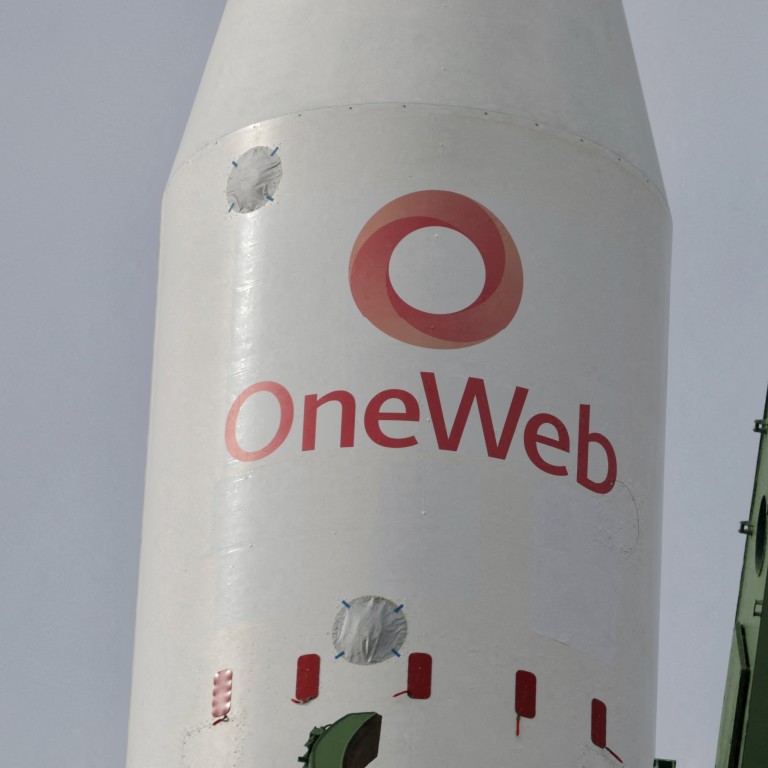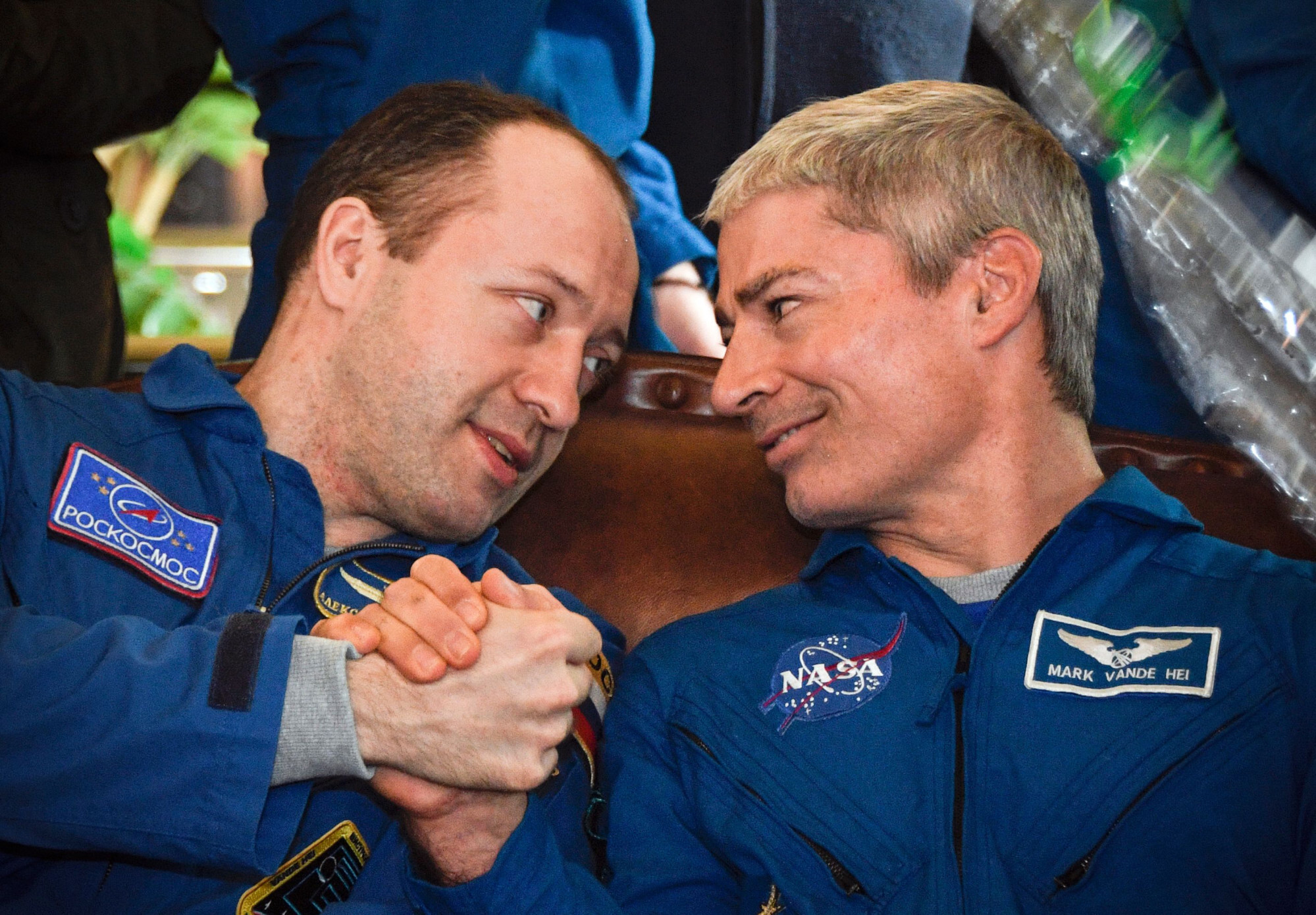
SpaceX, rivals get a lift as industry shuns Russian Soyuz rocket in the wake of Ukraine invasion, sanctions
- Elon Musk’s SpaceX, Rocket Lab and Arianespace are racing to replace Russia’s Soyuz, the most-launched rocket in history, after Western countries were cut off
- Soyuz’s commercial prospects have been diminished since cutting off OneWeb, an internet satellite company partially owned by the UK
Russia’s Soyuz rocket has carried people and payloads to space for decades, a workhorse that has amassed a record of reliability as the most launched in space flight history.
Yet in the span of a few weeks, the Soyuz’s prospects have been severely diminished in the fallout from Russia’s war in Ukraine. The nation’s moves to rework commercial contracts, halt deliveries and effectively seize property from Western customers has shaken the industry’s faith in Russia and its signature rocket.
“The Russian government just killed the commercial potential of Soyuz,” said Caleb Henry, a senior analyst at Quilty Analytics, a research and advisory firm. “Russia’s action threatens to permanently remove Soyuz from the list of globally used launch vehicles.”
China’s private space ventures are helping take on Elon Musk’s Starlink
Rocket Lab said it’s already assessing options to speed its newest rocket to market to fill the gap left by Soyuz. Elon Musk’s SpaceX, formally Space Exploration Technologies Corp, signed a deal to provide launch services later this year for OneWeb, a high-profile satellite operator partially owned by the UK government that has used the Soyuz.
Arianespace, which marketed and launched the Soyuz commercially as Europe’s medium-lift rocket, can shift Soyuz customers to its Ariane 6 rocket in 2023, chief executive officer Stephan Israel said Tuesday at the Satellite 2022 conference in Washington.
Central role
The Soyuz, built by Russia’s state space enterprise, Roscosmos, has made almost 2,000 flights since its 1966 introduction, and its role in space launches has become even more central in recent years. Europe adopted the rocket as its medium-lift launch vehicle in 2011. The retirement of the National Aeronautics and Space Administration’s Space Shuttle that same year meant that Soyuz was the only way for US astronauts to reach the International Space Station for almost a decade until SpaceX began offering another option.

Nasa astronaut Mark Vande Hei is scheduled to return from a 355-day stint in space on March 30 aboard a Soyuz. The two countries had also planned to swap seats on Soyuz and SpaceX’s Dragon, currently the only two vehicles able to ferry people. While Vande Hei’s return via Soyuz remains on track, it’s unclear if the Ukraine war will affect the seat-swap plans.
Commercial activities are already being disrupted.
OneWeb had six Soyuz launches planned over the next six months to complete its constellation of low-Earth orbit satellites to provide internet service. The company, also owned by Bharti Airtel Ltd and Eutelsat SA, ended the relationship March 3 after Russia demanded that OneWeb pledge that its satellites wouldn’t be used for military purposes and for the UK to divest its stake. OneWeb has deployed about two-thirds of its constellation with Soyuz launches.
The fate of the company’s satellites in Russia is unclear, OneWeb senior adviser Ruth Pritchard-Kelly said in an interview.
Roscosmos has also removed staff from a French Guiana launch site and stopped shipping rocket engines to the US, potentially affecting Northrop Grumman Corp and United Launch Alliance, a joint venture of Boeing Co and Lockheed Martin Corp. Northrop’s Antares rocket, which delivers cargo to the International Space Station, uses Russian RD-181 engines, while ULA’s Atlas V rocket operates with the RD-180 model.
US intelligence report warns of China’s threat in space
ULA has amassed sufficient RD-180s to cover its remaining Atlas V launches in coming years before that vehicle’s retirement, chief executive officer Tory Bruno has said. Representatives at Northrop Grumman didn’t respond to requests for comment.
Sanctions retaliation
Russia’s actions are seen as a quick means to retaliate against a barrage of US and European economic sanctions that have pummelled the country’s economy, said Henry of Quilty Analytics. The loss of Soyuz has delayed payloads, including multiple satellites and the European Space Agency’s ExoMars rover in September.
“I think they wanted to do something that would hurt people quickly and have a big impact,” Henry said. “They added a year or more of delays to several European programmes.”
Soyuz was already poised to face competition Rocket Lab. Its forthcoming medium-lift vehicle, Neutron, even took design cues from Soyuz, which Rocket Lab founder Peter Beck called “the most successful, the most frequently launched rocket in the entire history of space flight”.
“The Neutron lifts exactly the same as a Soyuz and that wasn’t by mistake,” Beck, the company’s chief executive officer, said in an interview.
Over the past decade, about one-third of Soyuz’s average of 20 annual flights were for commercial customers – “likely the largest source of hard currency for Roscosmos”, Quilty Analytics said in a March 21 report. Beck said the developments of the past few weeks will likely destroy Soyuz’s commercial prospects, pointing in particular to the “debacle” involving OneWeb.
“How can you trust Russia again?” he said. “That’s not a blotch in history that’s going to be quickly forgotten.”

